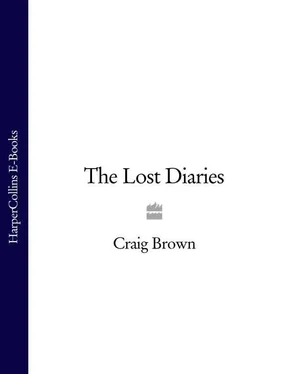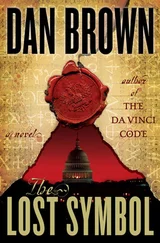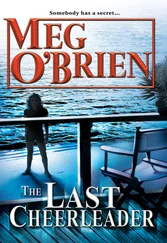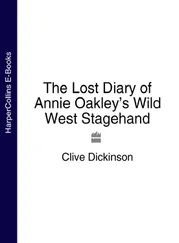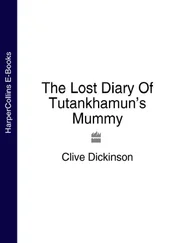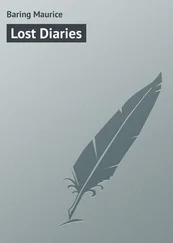I had been standing in the corner of the room with the dirty paper cup I had specially brought with me, when a man had come over –a tall, flashy type, with an easy smile, wearing a fashionable ‘tie’. He said: ‘You look a bit lonely, may I introduce myself?’ He then introduced himself. I didn’t reply, preferring to observe, as most serious playwrights do. He then said – again that fake smile – ‘And who are you?’
I was outraged, utterly outraged. And flabbergasted. Shocked, too. Shocked, outraged and flabbergasted. Not for me, of course, but for my profession, and the whole of British Theatre, from the lowest understudy right up to the most brilliant and dangerous playwright (whether that is me or not is beside the point). Why was this man –this man in his fashionable tie, with his promiscuous smile and his over-attentive handshake – pretending not to know who the hell I was? This was a sign of our inexorable national decline, as significant and painful in its way as the Miners’ Strike or the Falklands Conflict.
The State of Britain, Part Two: As the hurt and the horror surged within me, I felt driven to speak. ‘I’m David Hare,’ I said.
‘David Hare!’ he repeated. ‘Goodness! I really enjoy all your plays –you’re one of the greatest living playwrights, in my opinion!’
Note that patronising, biased and artfully demeaning tone in a statement riddled with the foul odour of ruling-class condescension: ‘ONE OF the greatest LIVING playwrights, IN MY OPINION’. Only in Britain – tired, sick, dislocated, dying Britain – in the 1980s could it be considered ‘fashionable’ to denigrate a serious playwright in this way. When I got home, I immediately wrote a cool letter to the host of the party, questioning his ethics in inviting me to a function at which there were people who openly hated me, roundly condemning his loathsome hypocrisy in not warning me of his treachery. He eventually replied with some sort of apology. Which all goes to show that here in Thatcher’s Britain, the national pastime – the national characteristic – is to apologise, apologise, apologise. When will we as a nation have the courage to stand up for ourselves?
SIR DAVID HARE
It’s now the Seventies. The Sixties – they seem like years ago, right? Years and years and years and years ago. Like literally ten years or even longer, right? But I remember them like they were yesterday, which was a Thursday, or was it a Monday? Can’t remember. Tuesday – that’s it. Or Sunday. Yesterday? Don’t talk to me about yesterday – I’m not into the whole tomorrow thing.
KEITH RICHARDS
It is now 1960, the very first year in the extraordinary decade that will, I feel sure, come to be known as the 1960s. Overnight, society has shaken off the starchy sexual mores of the 1950s. Suddenly, young men and women are casting aside their inhibitions and tapping their toes to the urgent, febrile rhythms of Lonnie Donegan. Among enlightened couples, cheese fondue is all the rage.
All the old barriers have suddenly come down. I find to my alarm that even men of the very greatest distinction can’t keep their hands to themselves. Last night, I had to fend off the then Chancellor of the Exchequer. I was interviewing him about the trade deficit on live television for New Year Late Night Love-In when suddenly he cast aside his red box, pulled down his trousers and leapt on top of me.
As I struggled to retain hold of my clipboard, veteran broadcaster Cliff Michelmore attempted to rectify the situation. ‘Let’s move swiftly on to the balance of payments, Chancellor,’ he said. ‘Any hope of an upturn come the autumn?’ But before the Chancellor had a chance to reply, the incoming governor of the Bank of England had barged into the studio, wearing nothing but a posing pouch. If this is how the Sixties begin, how on earth will they end?
JOAN BAKEWELL
Today I cook pasta. Pasta plain. But good. For those who come after, these directions I leave:
PASTA PLAIN – BUT GOOD
Ingredients: Pasta. And Salt. And Water. And Fire.
Directions:
Place the pasta in the water and the salt in the water and the water in the pot and the pot on the fire.
In the pot? The fire in the pot?
No. The water in the pot. The pot on the fire.
The pasta in the water?
Yes in the water.
And the salt in the fire?
No. The salt in the water.
And the water on the fire?
No. The water in the pot and the pot on the fire. Not the water on the fire. For then the fire will die and dying be dead. Nor will the water boil and the pasta will drain dry and not cooked and hard to the teeth.
The salt falls nor does it cease to fall.
The water boils. So be it.
Cease from placing your hand in the boiling water. Place your hand in the boiling water and it will cause you pain.
Much pain?
Very much pain.
In the pot the bubbles bubble up and bubble some more. The bubbles are bubbly. Never more bubbly bubbles bubbling bubbliest. And having bubbled the bubbles still bubbly.
Or bubblier?
Or bubblier.
Across the kitchen a board intended for chopping. Here. Take it. Chop.
What will I chop? There are no ingredients to chop.
Just chop. Don’t cease from chopping. To chop is to become a man.
After ten minutes. The pasta stiff and dry and upright no more. The pasta lank and wet and soft. In the eternal damp of water.
Pour water free like some ancient anointing. The pasta left alone in the pot. Alone and naked.
The salt. Where’s the salt?
The salt is gone. Lost to the water and gone forever.
I grieve for the salt.
It is the salt for which I grieve.
Tip the pasta out.
The pasta?
Yes. Tip it out. Onto.
A plate?
Yes. And stop.
Finishing your sentences?
Yes.
Why?
Because it is so.
Irritating?
CORMAC McCARTHY
Darling Debo,
Could you bear to cast your bejewell’d eye o’er this weary traveller’s joyous twitterings?
Day 1. Yanina, 8 March. We arrive in Prevaza from Yanina with Konitsa and Kalpaki before venturing forth to Kalpaki with Prevaza and Yanina. Umbrous olives procrastinate pleadingly over the weary waters in the priest’s leafy garden overlooking a forested valley along which a repining river flows flowingly. O’erhead flies a squawking convoy of stuffed courgettes, flapping fearlessly towards a destination undefined. Ah, the joy of skipping on the petulant pine-needles and the verdant grass underfoot! Gentians cluster in every fissure, and clusters fissure in every gentian. Blow the wind southerly, southerly, southerly! One nearly swoons away with the magic of the language as a sunbaked Sarakatsan muleteer, Christos Karvounis, cackles cautiously, recalling rough-hewn rambles with…
…and when we wake up – joy upon joys! – we fulsomely find we have another thirty-nine delightful days to gorgeously go.
Bundles of love,
Paddy
PATRICK LEIGH-FERMOR, FROM A LETTER TO DEBORAH, DUCHESS OF DEVONSHIRE
Nothing in your memory anywhere of anything so good. Now the pasta is eaten. Disappeared. The pasta disappeared as everything disappears. As the comma disappears and the semi-colon disappears and the inverted comma disappears and the apostrophe disappears and the adjectives and the pronouns all disappear.
Leaving just full stops and And.
And And?
And And.
And And.
CORMAC MCCARTHY
Darling Twat,
Can’t wait to read your last scrumptious screed, possibly first thing next year, or, failing that, the year after, leisure permitting.
Читать дальше
